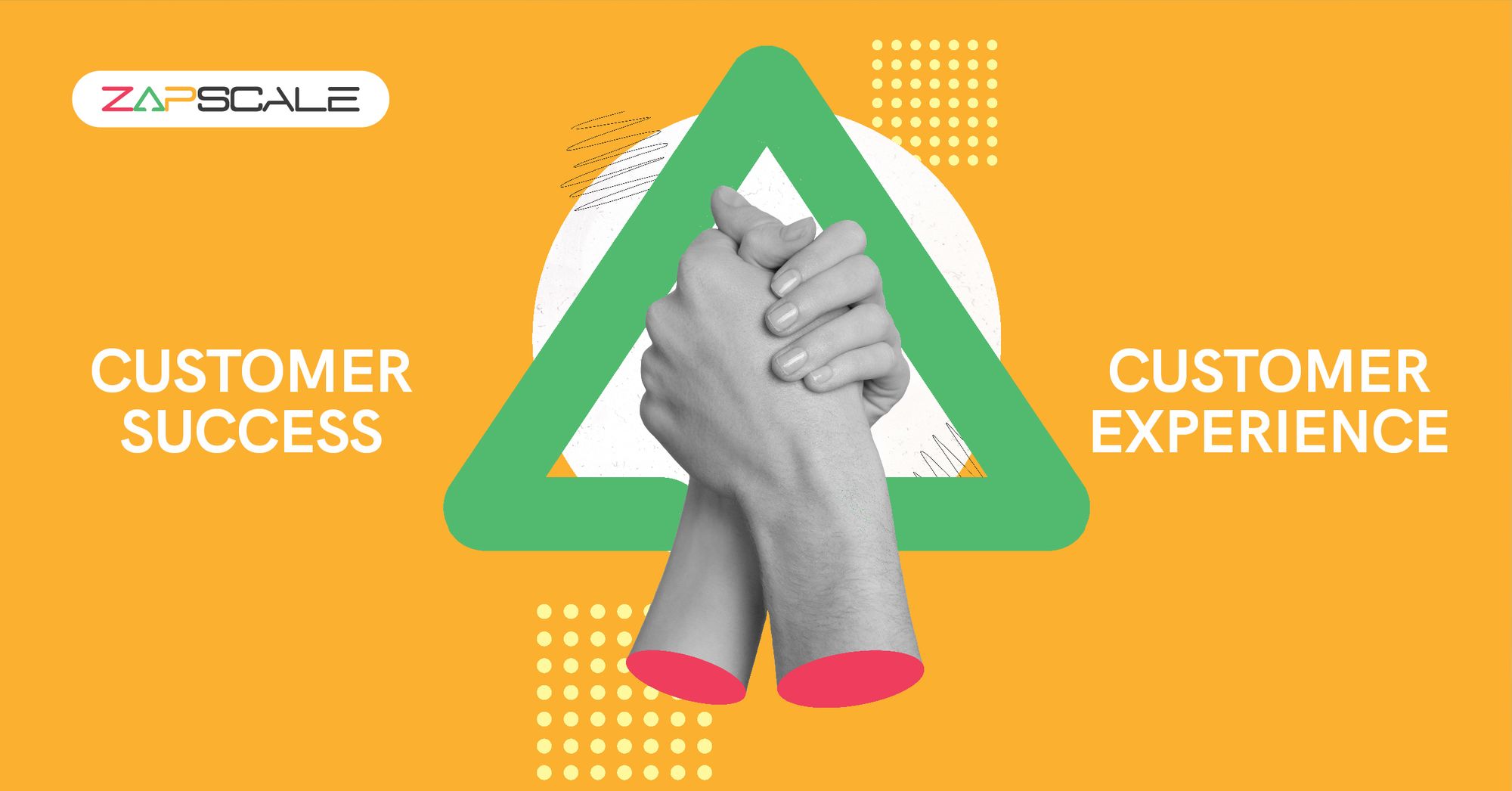CATEGORY > Customer Experience
Why should Customer Experience and Customer Success work together?

CX (Customer Experience) and CS (Customer Success) are two distinct but equally important departments within a company. However, they often work at cross purposes because of the lack of communication. Although CX and CS are similar, their objectives are extremely distinct, as are their respective activities, and outcomes. To understand the sole purpose of bringing these two teams together, let’s first examine the distinctions between Customer Success (CS) and Customer Experience (CX).
The objective of Customer Experience (CX)
Customer Experience (CX) describes how a customer feels about your product and brand overall. CX is supposed to keep a watch and work throughout the customer lifecycle – from the buyers’ journey to the after-sale customer journey. CX is a comprehensive concept that goes beyond product-only, sales-only, or service-only approaches. Anytime a customer interacts with the business—through people, products, or brands, it is all tracked and mapped to understand their experience. Client satisfaction score (CSAT), Net Promoter Score (NPS), Customer Acquisition Rate, and Conversion Rate are currently used to gauge these.
86% of buyers are willing to pay more for a great customer experience.
The purpose of Customer Success (CS)
Customer Success is a key revenue driver for your business. CS owns the after-sales funnel. When you run into issues with your users and customers, it can cost your company revenue, credibility, and customer trust. But if you have a solid Customer Success process in place and adopt the right tools, you can expand your business swiftly and sustainably.
Customer Success is supposed to focus on customer acquisition, customer satisfaction, and customer retention. Furthermore, a CS team creates opportunities for revenue expansion within the customer base by assuring that customers are getting tangible positive outcomes with the products and services they have purchased.
The performance of CS is evaluated mainly based on onboarding, success planning, product adoption, health monitoring, retention, and then customer expansion.
Both CX & CS work in silos because of their different roles and the different lines of business they serve. While CX is more closely aligned with marketing or service to get more customers in the pipeline and CS is more aligned with Sales to retain more customers – both functions operate while keeping the customers at the center.
How Customer Experience is Related to Customer Success
Customer Experience (CX) and Customer Success are two interconnected concepts that share the ultimate goal of fostering long-term customer relationships. While they might seem similar, they focus on different stages of the customer journey.
The relationship between the two is symbiotic
- CX sets the stage: A positive CX creates a foundation for customer success by establishing trust and building a strong relationship.
- Customer Success drives CX: By helping customers achieve their goals, customer success teams directly contribute to a positive overall experience.
- Shared focus on customer satisfaction: Both CX and customer success prioritize customer satisfaction and loyalty as key metrics.
In essence, customer success is a critical component of overall customer experience. By working together, CX and customer success teams can create a seamless and delightful customer journey that leads to long-term business growth.
Why should CX & CS work hand in hand?
To build a more holistic customer-centric organization, it’s ideal for CS & CX team to work hand in hand. In the current subscription economy, the expectation of a customer is very high when it comes to experience & service. Both these play a crucial role to keep a customer engaged with a brand/product/company.
From a business outcome point, the key common KPIs for both are:
- Boost customer retention
- Improve customer satisfaction, and
- Improve cross-selling and upselling
How customer journey improves when Customer Experience and Customer Success work together?

- Similar experiences throughout customers’ lifecycle (before-sales and after-sales). So, CS needs to be upraised with the information by CX directly or Sales.
- For any relationship, the first milestone is the most important – successful onboarding. Your current onboarding process can be improved with valuable CX insights
- CS can share a comprehensive customer view with CX (since the CS has a complete 360-degree view of the customer). This can help CX improve the experience. Here is an overview of a comprehensive customer view.
This is how CS should ideally look at customer data if they are not looking right now. With this, CS can involve CX wherever they find it necessary.
Conclusion
Ultimately, the goal for both departments is to create more loyal customers. Satisfied customers return frequently, remain loyal to the brand, and consequently convert to brand advocates. To enable this, a company should always put their customer first. And to achieve this objective, the first step should be to integrate customer information throughout all customer-facing teams. To begin with, the first 2 departments can be Customer Success and Customer Experience.
Frequently Asked Questions (FAQs)
1. What is the difference between Customer Experience (CX) and Customer Success (CS)?
While both CX and CS focus on the customer, they have distinct roles. CX encompasses the overall customer journey, from initial interaction to post-purchase experience. CS, on the other hand, is specifically focused on helping customers achieve their goals with a product or service.
2. How do CX and CS work together?
CX and CS are interconnected. A positive CX sets the stage for customer success by building trust and satisfaction. In turn, successful customers contribute to a positive overall CX through referrals, repeat business, and positive word-of-mouth.
3. Why is alignment between CX and CS important?
Aligning CX and CS teams ensures a consistent customer experience throughout the entire customer lifecycle. By working together, they can identify opportunities for improvement, create a seamless customer journey, and ultimately drive customer loyalty and business growth.
ABOUT THE AUTHOR
Popular from Customer Experience
Quality Content,
Straight To Your Inbox!
Subscribe for the latest blogs, podcasts, webinars, and events!

Write a Blog
If you have experience in CS and
a flair for writing, we’d love to
feature you.
Write to us on
hello@zapscale.com






